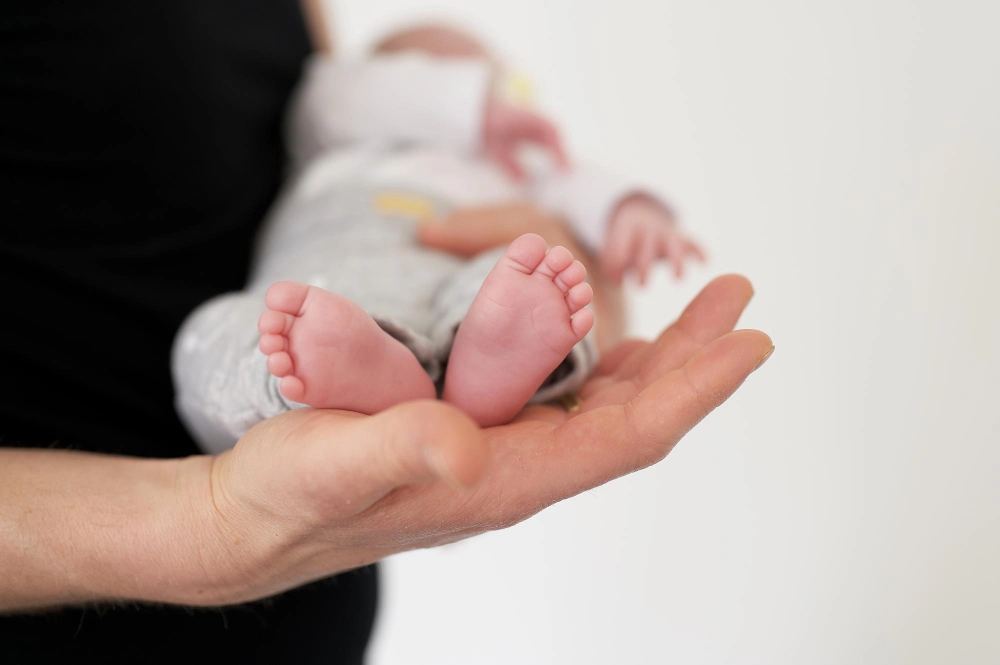We bury, we don't marry, we don't give birth - our future is in trouble, according to the KSH
The Hungarian population continues to shrink: 5323 children were born in April, 14% fewer than this time last year, while almost twice as many, 9,565, died, according to recent KSH data. The natural decrease was 4242. The number of births is falling, the fertility rate is close to a historic low, and the number of marriages has also fallen, the Hungarian Central Statistical Office (KSH) told MTI on Thursday. Demographic problems are also having a significant impact on the labour market.

April saw 5323 children born, down 14 percent from April 2024, or 852 fewer than in April 2024, according to the release. 9,565 people lost their lives, 2.3 percent, 228 fewer than a year earlier. The natural death rate was 4,242, down from 3,618 in April 2024, they added.
In April, 3,488 couples married, down 5.4 percent, 200 fewer than a year earlier.
They also added that 23,301 children were born in January-April, down 8.7 percent, or 2,216, from a year earlier. Within that, the number of live births in January was 4.1 per cent lower than in the same months of 2024, 8.6 per cent lower in February-March and 14 per cent lower in April.
The total fertility rate per woman is estimated at 1.28, up from 1.37 a year earlier,
it was reported.According to the release, 45,079 deaths occurred, 3.5 percent more than a year earlier, or 1,525. The death toll was 7.8 percent higher in January, 0.6 percent lower in February and 7.0 percent higher in March, while April saw 2.3 percent fewer deaths than the same period last year.
The balance of births and deaths resulted in a natural decrease of 21,778, 21 percent more than the 18,037 deaths recorded in the previous year.
Over the same period, 10 101 couples married, 6.1 percent fewer than a year earlier, 653 fewer than a year earlier. There were 4.4 per cent fewer marriages in January, 14 per cent fewer in February and 3.9 per cent fewer in March-April than in the same months of 2024.
As reported, there were 7.4 live births and 14.4 deaths per 1,000 residents. The live birth rate was 0.6 thousandths of a point lower and the death rate was 0.6 thousandths of a point higher than in January-April 2024.
The natural decrease increased by 1.3 thousandths of a point to 7.0 thousandths. There were 3.2 infant deaths per 1,000 live births, 0.9 thousandths of a point lower than the same period last year. The marriage rate was 3.2 thousandths, 0.2 thousandths of a point lower than a year earlier, they listed.
The data showed that 75,284 children were born between May 2024 and April 2025, down by 7,802, or 9.4 percent, from the previous 12 months. 129,025 died, 2,657 more than in the previous 12 months, 2.1 percent. 45,897 couples married, down 5,275, or 10 percent, from the previous 12 months, they added.
We are heading for a demographic disaster! Jobbik calls for solutions
The Jobbik Movement for Hungary finds it worrying that the number of births in Hungary has now reached a historic low. The dramatic decline in the number of births is not only endangering the demographic situation of the nation, but also the long-term sustainability of the domestic economy and the pension system," the Jobbik Movement for Hungary said in a statement.
In order to reverse this trend, Jobbik insists on its position that child-rearing should not be subject to punitive taxation. It would also support this with tangible measures, such as taxes on essential childcare items such as prams and baby clothes, as well as on medical and hygiene products. This would help parents to pay less for such necessities and thus receive real support from the state. The current situation, where a parent raising a child pays more VAT than they receive in support for their child, is unacceptable.
Jobbik calls on the government to take steps to solve the demographic crisis and help strengthen families to encourage childbearing. It is vital for the future of the country that the government provides real support for families and stops the depopulation.
Hungary will face very serious problems
Sándor Czomba, State Secretary for Employment Policy at the Ministry of National Economy (NGM), stressed that demographic problems have a significant impact on the labour market, with "60,000 fewer people aged 15-74 compared to the same period last year". On the basis of this trend, 30-40 thousand people will be absent from the Hungarian labour market every year in the coming years due to demographic problems alone, he said.
Financial Times: generous Hungarian family support has failed to deliver a baby boom and is increasing inequality
- read our previous article!
image: freepik
